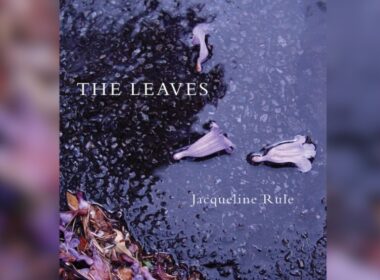Celine Song’s Past Lives has the DNA of the best kind of romantic drama. The melancholic kind, with earnest characters having real problems we connect with. In university, my flatmate came home to see me curled up on the couch, rewatching Sofia Coppola’s Lost in Translation. Past Lives is cut from that same sincere cloth.
The film starts with three people at a bar. A woman between two men. Two voices comment on trying to guess who these people are and what’s their relationship. From this point of view, it’s impossible to know everyone’s intentions, but give human beings enough to think about, and they’ll make their own preposterous assumptions. We love drama, don’t we?
The woman is Nora (Greta Lee). As a child (played by Seung Ah Moon), she lives in Seoul with her family but is on the cusp of emigrating to Toronto. She has a best friend that she admits to loving, Jung Hae Sung (as a child played by Seung Min Yim). They are inseparable; they help each other at school, go on supervised dates, and hold hands. It’s enough to break your heart when Nora says her final goodbye to a crestfallen Jung – evocatively shot by Song with a literal junction in the road, each child taking their own path.
Years later, Nora is in New York, studying to be a great playwright, and comes across the online profile of adult Jun (Teo Yoo). The two rekindle a distance relationship based on their memory of each other. But time and space are a constraint – Jun remains in Seoul, does his military service, finds a girlfriend, and becomes single again, while Nora meets Arthur (John Magaro), a young and talented writer she marries.
We jump ahead in time, and Jun is visiting New York, taking the chance to finally meet Nora again. The emotions resurface, but with them, the complexity. What connects Nora and Jun beyond their shared experience as children? Their conversations show how different they are – Jun is a businessman with very traditional and conservative ideas about family, and Nora is a New York intellectual.
Cultural differences are a constant theme throughout the film. In a seminal conversation with Arthur, Nora admits the paradox that when she’s with Jun, she feels Korean again, but also not Korean. I felt Nora’s pain there. I’m an immigrant; I’ve lived as many years in my birth country as abroad. Every day, I feel a pull to return, and speaking my language to someone feels natural. It’s relaxing, but when I visit them, the difference between who I am and the people I grew up with is obvious. Our perspectives and our morals are different. Nora, like me, lives in this limbo.
The other significant player in the story is Arthur. Played with gentleness by Magaro, he’s a thoughtful and understanding adult. There’s a moment of weakness when he shares with Nora his concerns – not because he thinks she’ll betray him, but because he understands if she did. Jun offers the nostalgic comfort that Arthur can’t, and, as he astutely observes, it’s the perfect romantic story with only him standing in the way.
It’s thoughtful that Song takes time to let Arthur open up, and the reward she gets is a rounded character who adds another layer to the emotional portmanteau of Past Lives. So, near the end, when the Song finally arrives at the scene from the beginning, we now have all the context we need to indulge in the emotional predicament of the characters.
Past Lives will make you cry. The ending alone is a decisive cinematic moment, with an extended tracking shot stretching along a road and back. Song writes the film with the cadence of an adult, but she also directs it with so much heart and talent. The image has a beautiful grainy texture from the 35mm washed-out colours. The sound is particularly striking – no one has captured the urban sounds of New York so thoroughly as Song since Scorsese in After Hours. There’s so much happening off-screen that makes the city so alive – ambulance sirens, people shouting, buskers, noise – it’s a lovely cacophony that contrasts with the personal nature of the theme.
I struggle to think anyone would be indifferent to this. Yes, it’s primarily people talking, but the drama comes from what is told between the lines and there of that here. If Before Sunrise and Lost in Translation are five-star films, Past Lives is every bit as good a movie as those two.
Verdict: 5 out of 5
For hopeful romantics, young immigrants, and anyone with a beating heart.




